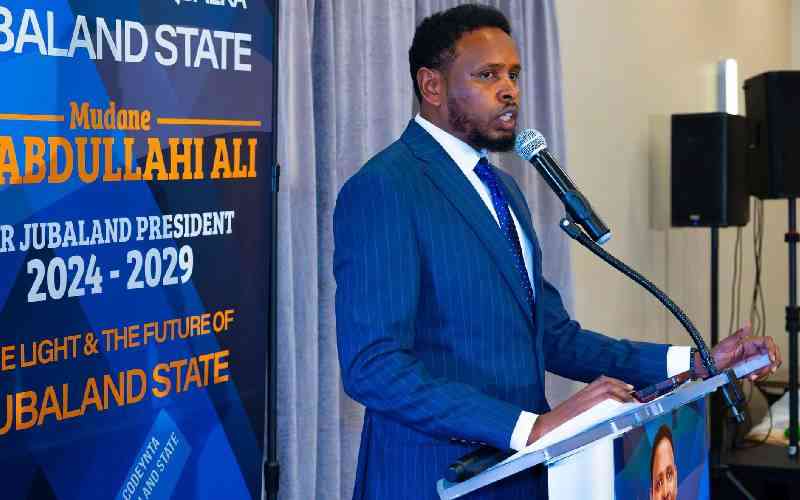×
The Standard e-Paper
Fearless, Trusted News

Opposition parties in Somalia's Jubaland State have threatened to hold a parallel electoral process, over what they term "unilateral" appointment of the electoral commission.
Leading opposition figures rejected Jubaland President Ahmed Madobe's appointment of a seven-member Independent Borders and Electoral Commission (IBEC) Saturday, and questioned the credibility of the presidential and parliamentary polls slated for late 2024.